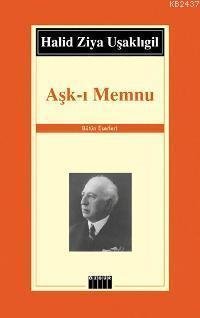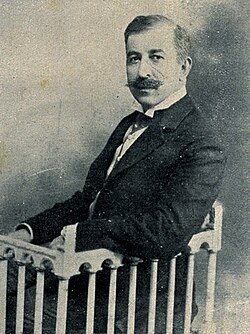Halid Ziya Uşaklıgil (1866 – 27 March 1945) was a Turkish author, poet, and playwright. Part of the "New Literature" movement of the late Ottoman Empire, he was the founder of and contributor to many literary movements and institutions, including his flagship "The Wealth of Knowledge" journal. He was a strong critic of the Sultan Abdul Hamid II, which led to the censorship of much of his work by the Ottoman government.
Uşaklıgil also founded the newspaper Hizmet in 1886. His many novels, include his 1899 romance novel Aşk-ı Memnu ("Forbidden Love"). Uşaklıgil's early style is based closely on French Romanticism and most of his novels deal with unfulfilled love. His work is distinguished from contemporary Turkish literature by its more concrete form and creates its own artistic language through the use of Persian and Arabic loanwords.
When his novel Kırık Hayatlar (Broken Lives) was censored by the Ottoman regime of Abdul Hamid II in 1901, he stopped publishing novels. He contributed to Mehâsin, a women's magazine which was founded in the aftermath of the Young Turk Revolution in 1908. Kırık Hayatlar could only be published in 1923 after the establishment of modern Turkey.
Aşk-ı Memnu or 'The Forbidden Love' is a Turkish romance novel adapted by Halit Refiğ into a TV series in 1975, considered to be the first miniseries on Turkish television. Another TV series adaptation named Aşk-ı Memnu aired from 2008 to 2010. It takes place in the modern-day Istanbul instead of the novel's late 19th-century setting. Telemundo produced a Spanish adaptation of the serial, Pasión prohibida, which was set in Miami. The novel was made into a 3-act play by Tarık Günersel, who also wrote a libretto for the Turkish composer Selman Ada, leading to an opera.

© Costas and Rita Severis Foundation
The 'Did you Know' series is supported by The Hellenic Initiative Canada.







